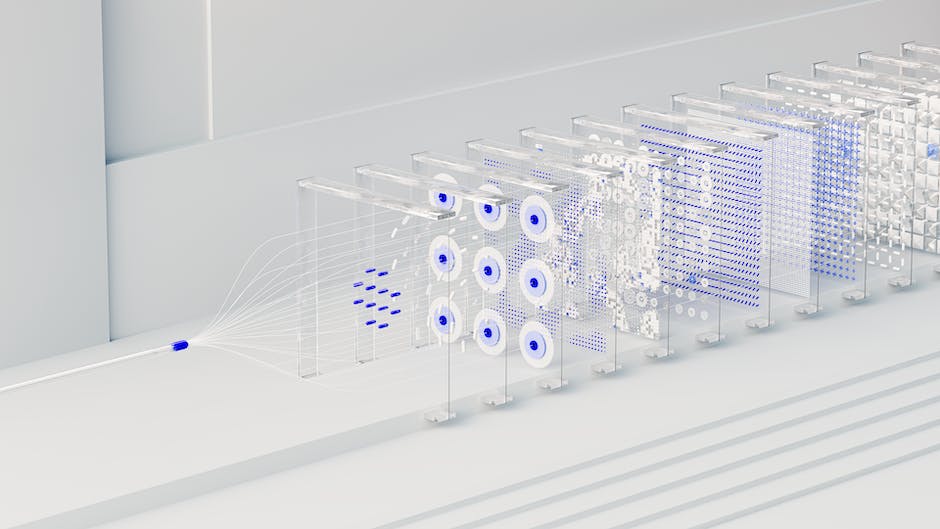The intersection of artificial intelligence (AI) and compiler design presents both complex challenges and promising opportunities. AI technology’s ability to learn, adapt and improve is shaping a bold new era in compiler design, promising strides in efficiency, optimization, and error detection. This exploration primarily demystifies the intricate relationship between compiler structures and AI technology, revealing how AI can enhance the traditional approaches of compiler design. Subsequently, focusing on parsing and analysis, we will unveil AI’s potential in propelling efficiency. From there, we delve into AI’s role in code optimization and error detection, offering a new perspective on these vital parts of the software development process. Eventually, we explore trending tools, emerging techniques and future perspectives, marking out how AI is pushing the boundaries of compiler design and optimization.
Understanding Basics: Compiler Design and AI
Understanding Compiler Design and its Types
A compiler acts as a mediator between the CPU and the programmer, translating human-friendly, high-level programming languages into machine code. Typically, it goes through five phases to convert raw code: lexical analysis, syntax analysis, semantic analysis, optimization, and code generation.
There are different types of compilers
such as just-in-time (JIT) compilers, AOT (ahead-of-time) compilers, and cross-compilers, each having its own advantages and disadvantages. JIT compilers, for example, compile code during execution (run-time), offering specific optimization for the device’s current state. AOT compilers allow code to be compiled before execution, optimizing it for general use cases. Cross-compilers, on the other hand, are designed to compile code for a platform different from the one on which the compilation process is run.
Current Issues in Compiler Design
Compiler design, though advanced, still contends with several limitations and issues that inhibit optimal operation. These include the difficulty of writing error-free code, the resource intensiveness of compiler optimization processes, the difficulty in maintaining a balance between code quality and compilation time, and the lack of adaptability to increasingly diverse hardware configurations.
AI and Machine Learning in Compiler Design
The use of artificial intelligence (AI) and machine learning (ML) in compiler design is a research area that could help to address these problems effectively. AI employs complex algorithms and computations to imitate human intelligence, while machine learning, a subset of AI, learns and improves from experience.
The integration of these technologies can enable compilers to learn from past mistakes and experiences, reduce errors, and improve the quality of generated code. They can also aid in better optimization decisions by learning from past data and trends. These abilities lend themselves to more efficient code translation and improved performance of executed programs.
AI-Driven Compiler Optimization
AI-driven compiler optimization is an emerging field with a vast potential for advancements in the efficiency and speed of code execution. Machine learning techniques can be used to predict the best optimization sequence for a given piece of code and hardware configuration, leading to improved runtime performance. For instance, an AI/ML model could be trained on large amounts of historical data and the corresponding ideal optimization strategies. The model could then learn to predict the optimal strategy based on code and configuration inputs.
Conclusion
The integration of artificial intelligence and machine learning into compiler design and optimization has been successful in not only addressing pre-existing difficulties but also paving the way for further development. The combination of AI and ML could provide beneficial approaches towards enhancing code generation quality and boosting software performance. Substantial hurdles and research opportunities continue to persist in this terrain, adding to its appeal as a space for further exploration and innovation.

AI-Enabled Analysis and Parsing
Lexical Analysis and Compiler Design
Lexical Analysis, also known as scanning, stands as the inaugural stage of the compilation process. It’s here that the source code gets converted into a series of tokens or meaningful parts, once all extraneous characters like whitespaces and comments are eliminated. These tokens encapsulate significant components like keywords, identifiers, operators, and more.
Involving AI at this juncture allows for training machine learning models to predict the nature of a token based on the provided coding context. Added to this, Natural Language Understanding could interpret the semantics of naming variables and functions, offering suggestions for more suitable names, thus making code more comprehensible.
Syntax Analysis in Compiler Design
Syntax Analysis, also known as parsing, is the second phase of the compilation process. It checks the grammatical structure of the source program by grouping tokens into hierarchical structures that represent the program’s syntax. If the program does not follow the rules of the programming language, it will return a syntax error.
Artificial Intelligence can greatly improve this area by learning the intricate rules of different programming languages. AI-enhanced parsers can be designed to understand the grammatical structure of the program with greater accuracy and efficiency than traditional methods. Neural-network-based parsers, for example, could learn from many examples of correctly written code, improving their performance over time.
Semantic Analysis in Compiler Design
Semantic Analysis is the third phase in the compilation process, checking the source program for semantic errors. These errors may include type mismatches, undelimited variables, and incorrect argument numbers in function calls. The semantic analyzer generates an annotated syntax tree which aids in the generation of intermediate code.
AI can play a vital role in optimizing this phase by predicting potential semantic errors and suggesting fixes. With Machine Learning algorithms, the system learns from past codes, which includes errors and their corresponding solutions. Thus, the system can identify patterns in semantic errors and provide accurate solutions to enhance the semantic analysis phase.
AI-based Approaches in Compiler Optimization
Artificial Intelligence (AI) methods open a plethora of possibilities in the realm of compiler optimization. By implementing deep learning algorithms, the system can effectively learn to optimize hardware usage tailored to each application, leading to significant reductions in time and energy expended. The said models, capable of being trained on extensive datasets, can gradually learn to make predictions considering code characteristics and the underlying hardware environment.
Succinctly, the incorporation of AI throughout the compiler design stages can markedly bolster the efficacy of code compilation and execution. Such systems can learn to foresee and rectify errors, fine-tune hardware utilization, and potentially enhance code comprehension. Notwithstanding the challenges such as intense computational needs and the requirement for high-quality training data, AI embodies colossal potential to innovate compiler design and optimization processes.

Artificial Intelligence in Code Optimization
The Confluence of AI and Compiler Design
In the domain of technology, Artificial Intelligence (AI) has brought about transformative changes, compiler design being one of the many beneficiaries. Compiler design, a crucial segment of computer science, encompasses the development of software applications to transition high-level source code, crafted by programmers, into low-level machine-friendly language. AI holds the key to make this conversion process notably effective by enhancing intermediate code and machine code optimization.
The Art of Optimization in Compiler Design
During the process of converting the high-level code to machine code, the compiler goes through multiple stages such as lexical analysis, syntax analysis, semantic analysis, intermediate code generation, code optimization, and code generation. Among these stages, code optimization plays a crucial role in enhancing the code’s execution speed and resources usage. It operates with the central objective of improving the intermediate code so that the final output uses fewer resources like memory, CPU cycles, and power during the execution.
Code optimization is broadly classified into two categories: machine-independent optimization, which occurs after the generation of intermediate code, and machine-dependent optimization that happens in the final stages of the compilation process. The latter is closely tied to the specifics of the target CPU architecture.
The Role of AI in Code Optimization
AI opens up new vistas in code optimization by learning patterns and applying insightful techniques to deliver more efficient machine code. Using machine learning algorithms, AI can automatically and effectively learn from the behavior of the code during its execution, and accordingly suggest optimizations. This is especially valuable as the optimizer learns strategies based on real execution scenarios and applies these strategies to process similar patterns in the future.
Unlike traditional compilers, which conduct optimizations based on pre-defined rules and heuristics that are manually written by human experts, AI-based compilers can dynamically adapt to the characteristics of the application codes and hardware configurations. They remember successful strategies for the programs they compile and adjust their strategies for future compilations.
For instance, reinforcement learning, a type of machine learning where an agent learns to behave in an environment by performing certain actions and receiving rewards, can be used. Here, the agent is the compiler, the environment is the space of possible optimizations, and the reward is the performance improvement after compilation.
The Challenges and Emerging Prospects
In the realm of AI’s application to compiler design and optimization, notable challenges must be addressed. These stem from the significant demand for training data to ensure the effective functioning of AI, as well as the computational costs affiliated with AI-based techniques.
Nevertheless, the evolving nature of processors, along with the constant adaptation of programming models and languages, amplify the demand for compilers that can efficiently adjust to such rapid advancements. AI, endowed with its rapid learning and adaptability, is poised to meet this escalating demand with significant effectiveness. AI-powered compilers hold the potential to drastically reshuffle the landscape of future compiler optimizations.

AI and Error Detection/Correction
AI’s Role in Compiler Design
A critical component of software engineering, compiler design entails the development of software capable of converting high-level programming language to machine-level code. The paramount goals of a compiler revolve around accuracy, speed, and memory efficiency. However, traditional compilers, which rely on procedural programming and a predefined set of instructions, are susceptible to errors during the translation process. These errors could significantly undermine a software’s performance, reliability, and overall security if they aren’t detected and corrected in time.
In the past, error correction was often a manual and monotonous task, necessitating an in-depth knowledge of the programming language’s syntax, grammar, and semantics. The advent of artificial intelligence has, however, radically transformed this process, paving the way towards simplification and automation.
With its predictive powe, AI is perfectly suited to foresee and rectify errors throughout the compilation process. Machine learning algorithms can be taught to discern patterns within the code, pinpoint potential errors, and suggest suitable fixes. From detecting and correcting syntax errors to maintaining semantic consistency by aligning code to the programming language rules, AI’s application holds immense potential in refining the compiler design process.
How AI Enhances Compiler Optimization
Beyond error detection and correction, AI can be incorporated into compiler design to enhance optimization. Compiler optimization is a set of techniques used to improve the performance and efficiency of a program’s execution. Traditional optimization strategies include loop transformation, function inlining, and dead code elimination. But these strategies largely depend on predefined heuristics and may fail to fully optimize the code due to the override nature of these heuristics.
AI comes into play by providing data-driven optimization strategies. Machine learning algorithms can be trained to understand the pattern and relation between source programs and target machine codes. It can then predict the most efficient transformation sequence based on the specific characteristics of a program, thus enhancing the optimization process. For example, reinforcement learning has been used in training AI for this purpose. The AI system analyzes past code-transformation instances, learns from this data, and applies the learned knowledge to new, unseen code optimization tasks.
Advantages of Integrating AI into Compiler Design
Integrating AI into compiler design augments software productivity and reliability immeasurably. With its ability to swiftly and accurately analyze massive quantities of code data, AI enhances the quality, security, and execution speed of the final software product. Subsequently, developers have less need to invest time in detecting and rectifying errors, leading to an overall rise in productivity.
Added to this, AI possesses the capacity to learn from past errors and improve over time, contributing to ongoing enhancement in the software development process. Compiler designers equipped with AI can reset the limit of possibilities in areas such as optimization, efficiency, and performance. The seamless amalgamation of AI into compiler design is indeed a stride towards a promising future characterized by automated, efficient, and reliable software engineering.

Cutting-Edge Tools, Techniques, and Future Perspectives
Impact of Artificial Intelligence on Compiler Design and Optimization
No sector has remained untouched by the transformative potential of Artificial Intelligence (AI), compiler design and optimization included. Presently, sophisticated machine learning algorithms are being employed to fashion next-gen optimizing compilers, capably ameliorating code performance.
There was a time when optimizing compilers were hardcoded with heuristic rules that were not capable of adapting to varied workloads. Consequently, these static optimizations often proved inefficient under different runtime conditions. The introduction of AI into this sphere has perceptibly ameliorated this constraint by introducing adaptive and learning-based techniques that guarantee maximum code optimization.
Trending Tools Leveraging AI in Compiler Design and Optimization
Several tools are leveraging AI for compiler design and optimization. Facebook’s Glow compiler, for instance, uses machine learning for optimizing deep learning models. It generates highly efficient code by intelligently partitioning and optimizing deep learning computations.
TensorFlow’s MLIR (Multi-Level Intermediate Representation), on the other hand, aims to simplify compiler infrastructure by integrating multiple compiler backends. It employs machine learning technologies to optimize for different targets including CPUs, GPUs, and custom accelerators.
In addition, a project called Ithemal, developed by Stanford and Facebook AI researchers, uses a deep learning model to accurately predict the execution time of a given piece of code. It proves to be more effective and precise compared to the traditional cost models used in compiler optimization.
Emerging Techniques and Latest Research Findings
The application of AI in compiler optimization is an emerging field with a great deal of active research. A key technique in this area involves using machine learning to predict optimal compiler flags, or settings, for each program to be compiled. This often results in significantly faster, more efficient programs as compared to using the default flags.
Reinforcement learning has also shown promise in this domain. For instance, a research tool called Vemal by ETH Zurich uses a reinforcement learning framework to find optimal binary LLVM-IR instructions sequences.
Applications and Future Perspectives
As computing systems continue to grow in complexity, there are vast opportunities and challenges for AI to transform compiler design and optimization. High-performance computing, mobile computing, Internet of Things (IoT), and deep learning are some areas that could greatly benefit from AI-infused compiler optimizations.
Moreover, a significant area of future interest lies in automating compilation parameter tuning. Today, programmers manually specify compilation parameters, but with the integration of AI, this process could be largely automated, freeing developers to focus on other critical aspects of programming.
Despite the promising potential, applying AI in compiler design and optimization is still a burgeoning field, with methodologies, techniques, and best practices remaining to be defined and refined. In this scenario, continued research, innovative thinking, and experimental courage will inevitably shape the future of AI in compiler design and optimization as transformative technologies take center stage.

Compiling code is a complex and critical task that forms the foundation of almost every software process. AI has the potential to revolutionize this process, introducing increased efficiency, advanced optimization, and improved error detection. Our comprehensive exploration reveals how AI can be utilized in every stage of compiler design. Through enhanced analysis and parsing, refined code optimization, and intelligent error prediction and rectification, AI offers fascinating opportunities for optimizing the traditional process of compiler design. Furthermore, the growing array of tools powered by AI reveals a promising future for this field, one where AI’s adaptive intelligence could redefine the essence of the compiler systems. The role of AI in compiler design and optimization is not just a remarkable testimony to the advancement of technology, but also a promise of an exciting future of possibilities.